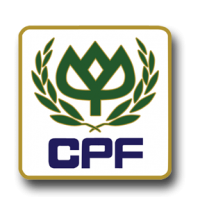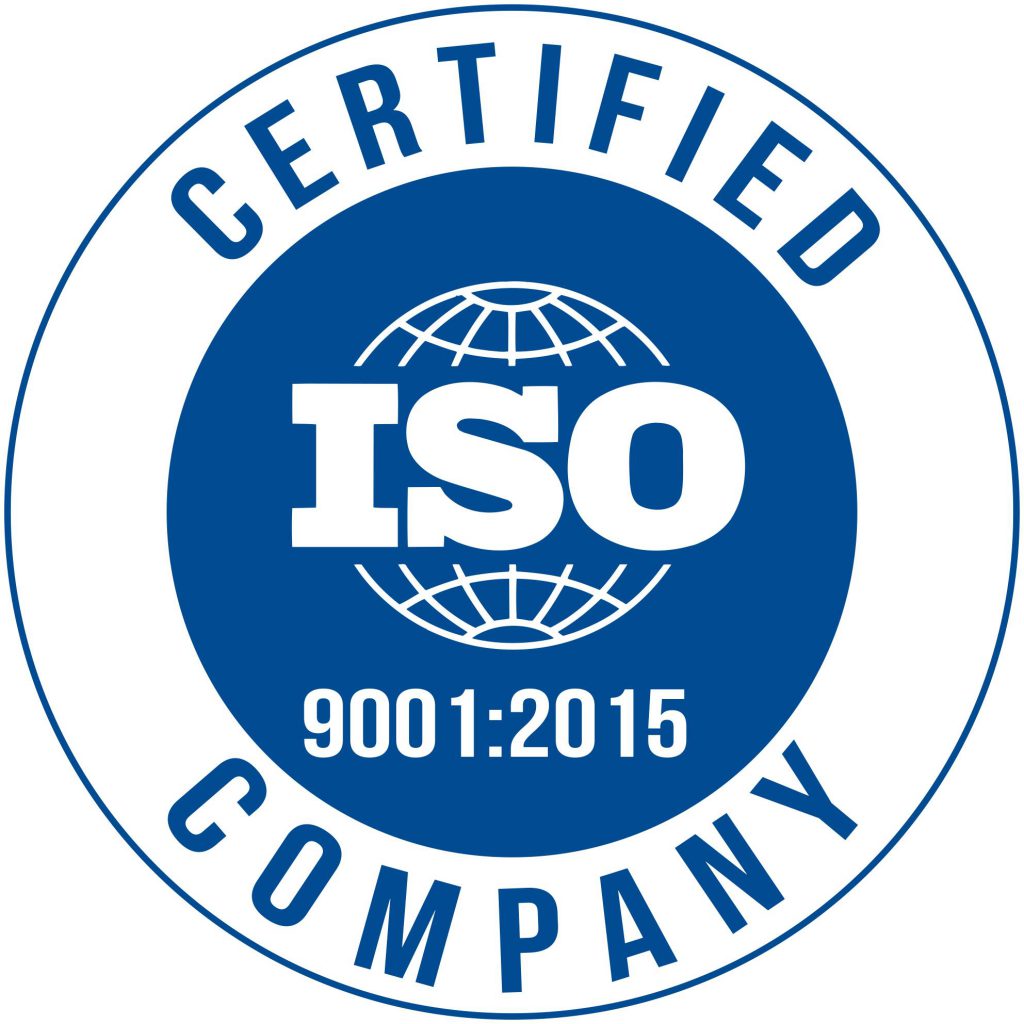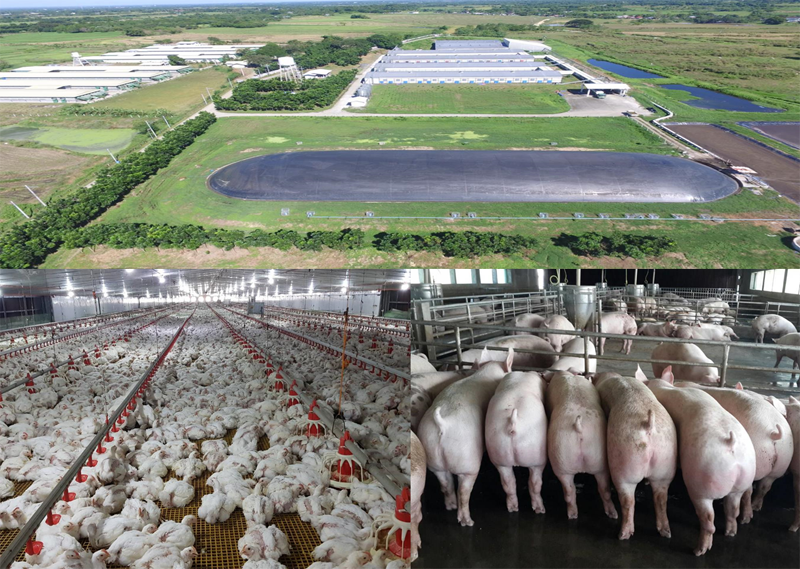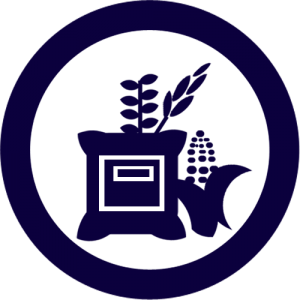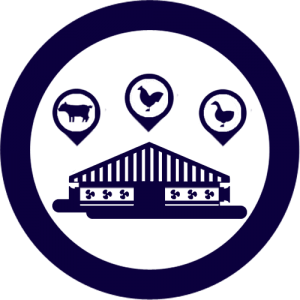Farm
Major types of animal for farming business include swine, broiler, layer, duck, shrimp and fish. Two main types of products include 1) animal breeders and 2) commercial animal and products from animal, including preliminary processed meats. Key factors to the success of sustainable farming are the quality of animal feed, animal breed, farm management technology and effective bio-security to prevent diseases outbreak.
With its the ambition to promote access to protein source and safe and quality foods for consumers worldwide especially in developing countries, to support rapidly growing population, and to adapt to the changing trends, the Company places great importance in every step of its operations starting from breeding, farming and processing.
Animal Breeding
The Company gives importance to the research and development of improving animal breeds by natural genetic selection, as a way to derive animal breeds that have quality, and are suitable for farming conditions in each country. Comprehensive research and development has resulted in the better growth of animal within shorter time periods, higher feed consumption, better Feed Conversion Ratio, higher survival rates, sturdy, and better immunity towards diseases. This is suitable towards creating safe and high quality foods for consumers.
Animal Farming
The Company identifies location of its farms by taking into account the ability to manage the risks associated with infrastructure needed to raise the animals, such as having sufficient water supplies, the ability to manage the effects on the surrounding environment and community, and the distance from farms to slaughterhouses to ensure the efficiency of transportation and product quality. Furthermore, the Company has continuously developed animal farming technology.
• Livestock: Employs fully enclosed animal housing with Evaporative Cooling System. Automatic feeding and watering has been provided with lighting appropriate for each type of animals. The Company’s animal houses are free of transmission or spreading of diseases from animals and insects and controlled by computerized system throughout the period of animal husbandry.
• Aquatic Animals: Focuses on Probiotic Farming technology, which avoids the use of drug and chemicals and environmental friendly, as well as using technologies to prevent diseases.
In addition to the Company’s own farm, the Company has also a project to promote animal farming to farmers in Thailand. The Company shall select farmers who have their own farming areas and equipment. The selected farmers shall be provided with the Company’s support in terms of animal breeds, feed, veterinary supplies and technical knowledge on animal farming to the same standard as the Company’s own farm. Therefore, the farmers can select feed appropriate to each animal type and breed. The Company also help improve farmer’s efficiency while concerning the cost and the quality of the animal according to the consumer’s need. This results in farmers having higher yield and earn more income. This project creates jobs, build careers, uplifts living standards of farmers to become business partners growing sustainably together with the company.
Preliminary Processing
The Company gives meticulous attention to the slaughtering process as it is one of the important steps to obtain key raw material which will directly impact the quality of safe foods free of residual. CPF strictly complies with animal welfare standards, starting from gently catching of chicken, duck, swine, and aquatic animals. The animals shall be transported by specific vehicles and equipment that cause no harm during transportation. The number of animal being transported is controlled to prevent crowdedness. When the transport vehicle arrives at slaughtering plant, it must rest in the appropriate area to comfort the animal and reduce stress. Afterwards, the animal will be processed and packaged to maintain its freshness and cleanliness.
As farming business may cause odor from animal waste, most of the Company’s farms are located outside populated communities and far away from concentrated farming areas. At the same time, swine waste occurring daily has direct impact to the increase of greenhouse gases and global warming. The Company has therefore defined procedures and good management by using animal wastes to produce biogas to generate electricity for in-farm usage. In addition, the Company has encouraged its customer farmers to use the biogas system extensively, which does not only mitigate the impact of farming towards the environment in terms of wastes and air pollution, but also helps the Company and farmers reduce the electricity cost in doing business.
